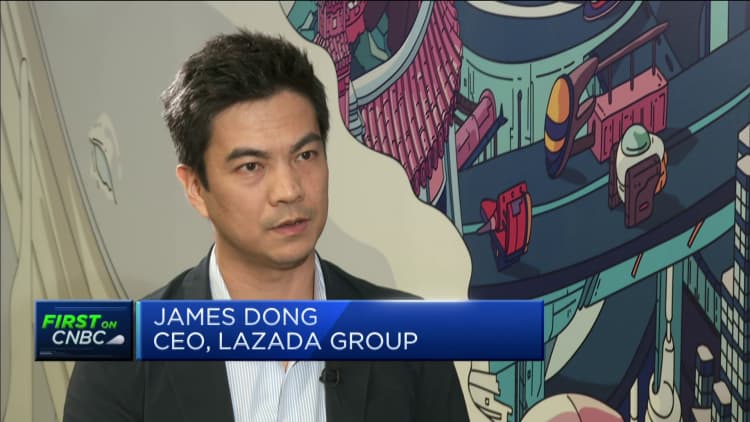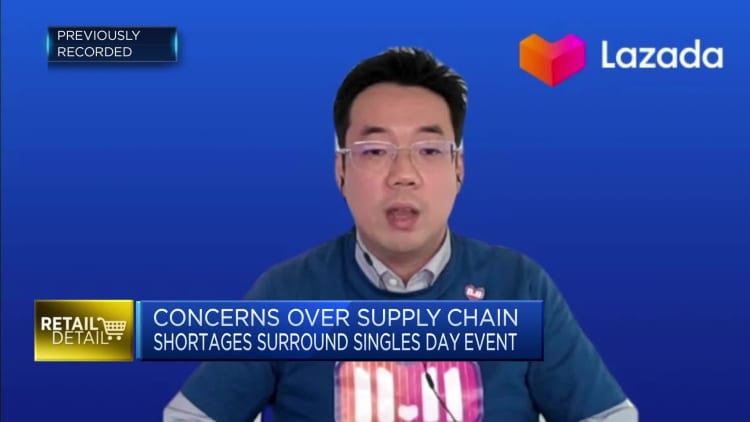
E-commerce companies around the world enjoyed a boost during the pandemic as people trapped in lockdown went shopping online, but James Dong, the CEO of Alibaba-owned Lazada group, said there were plenty of challenges as well.
"On one side, you have a rising number of … grocery orders and consumers want to really get it in time and they want to get it fresh, mint condition," he told CNBC's "Squawk Box Asia" on Thursday.
"On the other side, the supply, the infrastructure, [there are so many] challenges around that. It's very difficult to ramp up … during a pandemic."
To overcome some of the challenges, the Southeast Asian online marketplace had to "join forces" with traditional retail players, Dong said.
"For example, we had a partnership deal with Masan group in Vietnam. They have a lot of offline stores, grocery stores, and we work with them [to] deliver from their store to the consumers."
In May last year, a consortium led by Alibaba and Baring Private Equity Asia invested $400 million in the CrownX, the retail unit of Vietnamese conglomerate Masan.
Dong, who was previously CEO for Lazada Thailand and Vietnam, said that most — if not all — offline players should become partners of Lazada.
"The pandemic actually accelerates this type of partnership … we realized nobody can serve all the needs that consumer have. So it's better that we join forces, put all our strengths together and then we can serve them."

Global supply chains have been stalled due to China's strict "zero-Covid" policies, bad weather and labor shortages as a result of pandemic disruptions.
As a result, Chinese tech giants posted their worst quarterly growth in the second quarter of 2022 – with internet titan Alibaba, for example, posting its first ever flat year-on-year quarterly revenue growth.
Dong said the trend of partnerships between online platforms and brick-and-mortar stores will continue in years to come as businesses try to manage supply challenges.
"The lines between online and offline worlds — it [has] to blur even more," he added.

